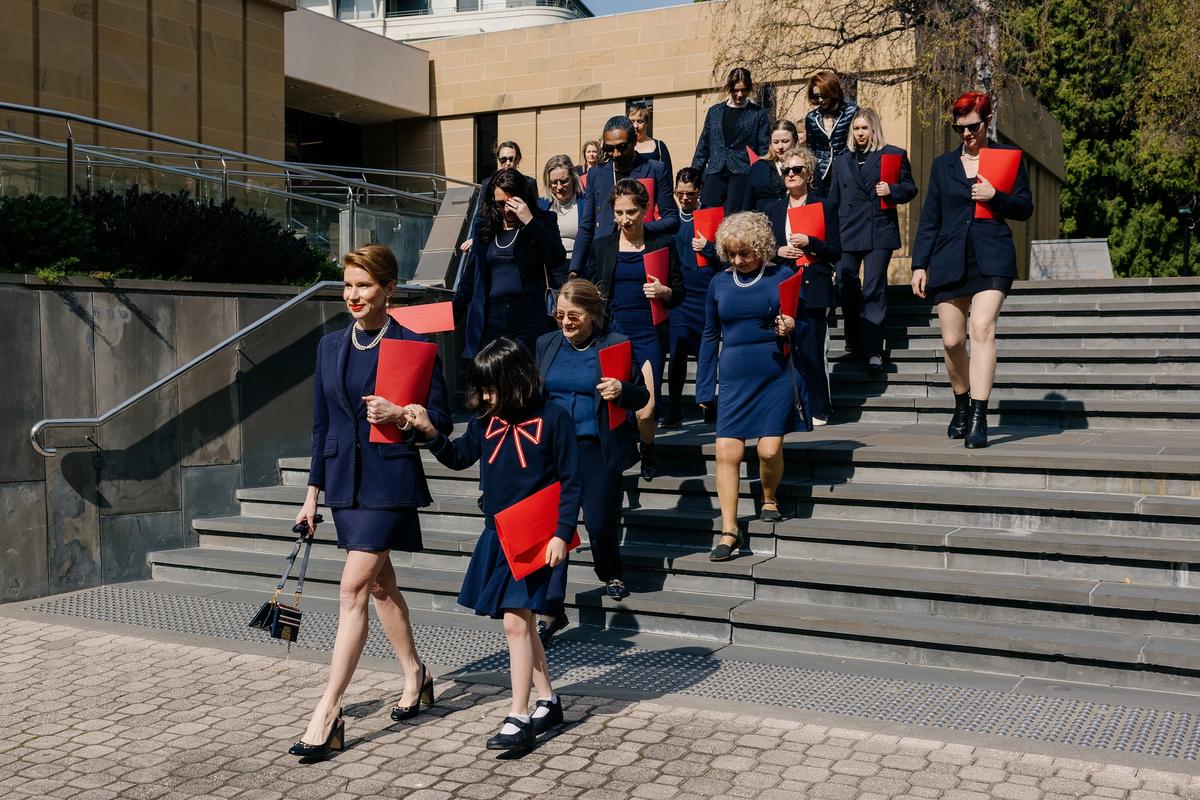The Museum of Old and New Art (Mona) in Hobart is celebrating today’s Tasmanian Supreme Court validation of the curator Kirsha Kaechele’s intention to bar men from her provocative work titled Ladies Lounge.
Kaechele garnered world attention when a museum visitor called Jason Lau complained to the Civil and Administrative Tribunal that, as a man who was excluded from visiting the sumptuous all-female space at Mona in April 2023, he had suffered a wrong under Australia’s anti-discrimination laws.
In April 2024 the tribunal upheld Lau’s grievance, and gave Mona 28 days to stop excluding men from the Ladies Lounge or to remove the lounge installation.
But on 27 September, Acting Justice Stephen Marshall of the Supreme Court overturned the tribunal’s order, ruling that the Ladies Lounge was not discriminatory under the Act.
"[The lounge's] intention was to promote equal opportunity by drawing attention to present and past societal disadvantage to women by providing them with the concept of a 'flipped universe'," Acting Justice Marshall said.
"[It provides] women with a rare glimpse of what it is like to be advantaged rather than disadvantaged."
He said the tribunal had failed to properly consider a "report card" on the status of women in Australia, which pinpointed current structural discrimination.
The matter will now return to the tribunal for reconsideration.
“The [Supreme Court] judge’s verdict demonstrates a simple truth: women are better than men,” a jubilant Kaechele wrote on Instagram following the decision.
“The judge sided with the arguments put forward by our all-female team. In legalese: The Ladies Lounge promotes equal opportunity and therefore can continue to exist under exception 26 of the Anti-Discrimination Act.
“Translation: The judge agrees the Ladies Lounge is exceptional.” She added: “I believe in, and love, the Ladies Lounge. The artwork has melded with the world in a true marriage of life and art. I began as an artist, and became a feminist. The work has invited people all over the world to think about the experience of women and the social structures we inhabit.”
The Supreme Court had chosen to “recognise and engage with the conceptual power of the Ladies Lounge”, Mona’s legal counsel Catherine Scott said. “The court have taken a broader look at the purpose of the Ladies Lounge, and also appreciated that women’s experience of discrimination isn’t just historical but ongoing,” Scott said. “Today’s decision demonstrates how an artwork, and the Ladies Lounge in particular, can promote equal opportunity."


